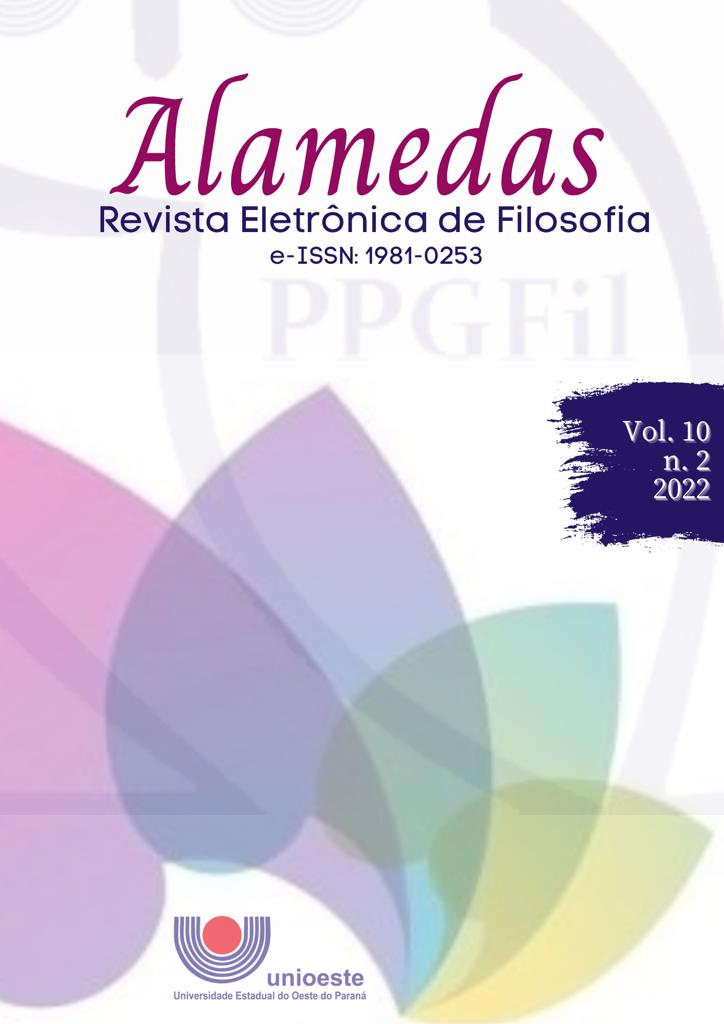Ideia e percepção em Malebranche
análise da teoria da cognição em "A busca da verdade"
DOI:
https://doi.org/10.48075/ra.v10i2.30314Abstract
The present paper contextualizes the epistemological problem of perception in Nicolas Malebranche, from The Search after Truth, 1674, specifically in the second part of the third book. There he resolutely takes a stand on the following question: how are our perceptions of material things possible? The aim of the paper is to clarify Malebranche’s position, which searches to expose the logical, ontological, and epistemological conditions for perception. We follow the route: I) we clarify the question for the possibility of perception, II) expose some fundamental definitions of Malebranche’s philosophy, III) situate the problem within the authors’ epistemology, IV) follow Malebranche’s analysis of the five hypotheses (exhaustive) that answer to the problem at hand, and the counterarguments against four of them, V) follow the argument in favor of the fifth hypothesis: that we can perceive all things by seeing their ideas in God. The fifth moment is also our research’s result, that is, Malebranche excludes four of the five hypotheses, and by accepting the one (and only) remaining, he resolves the perception problem with his theory of ideas, according to which, we have perceptions of all things in God.
Downloads
Published
How to Cite
Issue
Section
License
Copyright (c) 2023 Alamedas

This work is licensed under a Creative Commons Attribution-NonCommercial-ShareAlike 4.0 International License.
Aviso de Direito Autoral Creative Commons
Política para Periódicos de Acesso Livre
Autores que publicam nesta revista concordam com os seguintes termos:
1. Autores mantém os direitos autorais e concedem à revista o direito de primeira publicação, com o trabalho simultaneamente licenciado sob a Licença Creative Commons Attribution que permite o compartilhamento do trabalho com reconhecimento da autoria e publicação inicial nesta revista.2. Autores têm autorização para assumir contratos adicionais separadamente, para distribuição não-exclusiva da versão do trabalho publicada nesta revista (ex.: publicar em repositório institucional ou como capítulo de livro), com reconhecimento de autoria e publicação inicial nesta revista.
3. Autores têm permissão e são estimulados a publicar e distribuir seu trabalho online (ex.: em repositórios institucionais ou na sua página pessoal) a qualquer ponto antes ou durante o processo editorial, já que isso pode gerar alterações produtivas, bem como aumentar o impacto e a citação do trabalho publicado (Veja O Efeito do Acesso Livre).
Licença Creative Commons
Esta obra está licenciada com uma Licença Creative Commons Atribuição-NãoComercial-CompartilhaIgual 4.0 Internacional, o que permite compartilhar, copiar, distribuir, exibir, reproduzir, a totalidade ou partes desde que não tenha objetivo comercial e sejam citados os autores e a fonte.


